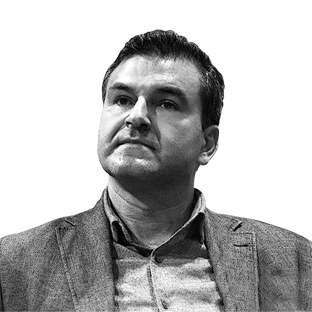Isn’t the 10th of June ours anymore?

They caused, well, controversial the official speeches of June 10. These, although politically irrelevant, are an example of pieces, albeit smaller and only reflex, of this dominant ideology of uprooting and deidentification.
Simone Weil, one of the mandatory philosophers of contemporary, stated that rooting is one of the fundamental needs of the human soul. If the word « soul » causes confusion to the reader, we can replace it with « nature » or with what is most human in man. There is only a fair and decent society when recognizing the fundamental needs of the soul, among which rooting occupies a central place.
The rooting means having deep and stable ties with a community, a story, a place, and a tradition. It implies a connection to something that goes beyond the individual and gives him continuity in time and space. This is what allows us to be linked and linked to something larger, which gives meaning to our existence, which welcomes us, to which we belong and for which we are responsible, conveying what was legacy. This conductive thread is one of the noblest of humanity and civilization. It contrasts with the atomized view of the human being, typical of many contemporary discourses, where it is assumed that the world begins and ends in the precariousness of finite individuality.
It is the uprooting the main cause of human suffering. The western way of being westernly, as the light -based work of deidentification mentioned, is responsible for increasingly selfish and mentally disturbed societies. When we have no collective memory, common vocation, local traditions and roots, our fragility and the ease with which we become manipulable is worse.
Destroying the foundations that were also resistance-such as values, our ethical-cultural heritage, the sense of community, the importance of ties and bonds, historical continuity and all identity processes donating meaning-to live the moment, the triumph of subjectivity, to live only for us, has become new comprehensive normality. How to live for others, or to another, if they no longer exist or we no longer believe in them? When the past was devilfted and the future ceased to be consistent, only the immediate gift and the satisfaction of the self: to live the moment. Ties are now seen as dependencies and are administered by the state and large corporations and all that they represent. Narcissism is the psychological expression of this new dependence.
Being rooted, being more fully human, depends on having a real and active connection with the past, that is, with history and traditions. It also depends on participating in a stable collective life, such as family, village or nation, and having a role with meaning in the order of the world, where the duty and responsibility are recognized, beyond simple individual satisfaction.
Weil stated that, before thinking of rights, we must think of duties, especially in the duties of society for the human being as rooted. The political sphere, as it would later develop Hannah Arendt, must begin by recognizing that there are unconditional obligations in the face of the human being. One of these obligations is precisely to ensure that each one can take root.
Progressism provides this anthropology of empty man to the hyperliberal machine of consumption and unlimited production. Therefore, the progressive is the one who no longer believes in anything. Modern man is now conceived as an abstraction, a nonexistent ideal. The citizen gave rise to the atomized consumer, which is the result of a total and permanent process of uprooting, unlinking and deficiting. The contemporary man, this ideal consumer covered by a varnish of great civilizational advance, is man without identity, whether sex, cultural or spiritual, the relativist, who only governs by subjectivism and emotivism.
The contemporary man is fluid, indefinite, that is, nothing. We no longer have a definite sex: this is now a social construction. There is no father or mother, but « progenitor one » and « progenitor two ». Motherhood no longer belongs to women, nor paternity to men. Nationality is just an administrative and bureaucratic act: it is bought, it is acquired, as if it were an object.
Christopher Lasch described this loss of human dimension, reduced to his narcissistic expression as a result of the spiritual emptiness caused by the erosion of community and family references. Complementarily, Alasdair Macinthre, in After virtuewarned for the moral fragmentation of the West, where it is no longer known « who » if it is, nor « for » to act. Spiritual identity, whether of an individual or people, has disappeared from almost all political discourse, despite being one of its foundations.
This diagnosis is added Augusto Del Noce, which warned of the emergence of a totalitarian technocracy that, under the pretext of freedom, promotes the reduction of man to his economic-consumer function. For his part, Roger Scruton denounced the replacement of the person with a functional unit integrated into a global market, where they are no longer recognized or vocation. These authors, each in its own staff, converge in the same finding: the dehumanization operated by a deidentifying modernity.
But the deidentification and destruction of the constitutive and distinctive processes of the human being must be considered harmful, and even criminal. They are our enemy, the enemy of the human. Let us think: depersonalizing and deidentifying are typical of any totalitarian prison process. When we are nothing more, they can do us whatever they want, invent us a history, a false paternity.
Hannah Arendt, when analyzing totalitarian regimes, precisely identified this strategy: the atomization of individuals and the destruction of natural belongings, such as family, religion or homeland, so that the total state becomes the only source of identity. A man without past, nameless and without ties is the ideal citizen of the new technocratic leviathan.
We are the ideal consumer of the great hyperliberal machine. And, as George Orwell explained, now « not being being », « slavery is freedom. »
These June 10 ceremonies are but tiny replicas of this ideology of deidentification. Portugal Day has already become a date that celebrates what is no longer known exactly what it is, or why it is.
The true root is the enemy of empty man and for this dominant ideology. The more outdated the more manipulable we are. The new process consists in associating all the best in the human one that should be denying: being a man or woman, having a homeland, a spiritual, cultural and historical identity, having a past, a family, a name.
All of this must be devastated in the global supermarket and the World Phaeador, so that the perfect slave is built: atomized, amnesic, malleable, hypermobile, without memory or horizon. A happy, empty servant, ready to consume everything the system wants it to be.
Hold the father, the mother, our religion and culture, our heroes, our history, is the great motto of the ideal consumer.
ATTENTION: These are not idyllic or laudatory versions of our identity. There are no angels or paradise without a macula in human history. But the man who grows without a spiritual, cultural, religious, geographical and historical identity is like a child who grows without a father, without a mother, without references, only in the huge shopping center.
Yes, we must aspire to the Universal. But not this abstract and disembodied universalism, which shares nothing to the living reality of cultures and roots. True universality is born of concrete, identities, history, tradition. Driven us to abandon all this in the name of an empty idea of universal, is, in practice, to ask us to cease to be. And that is as serious as falsifying our own story. ”








